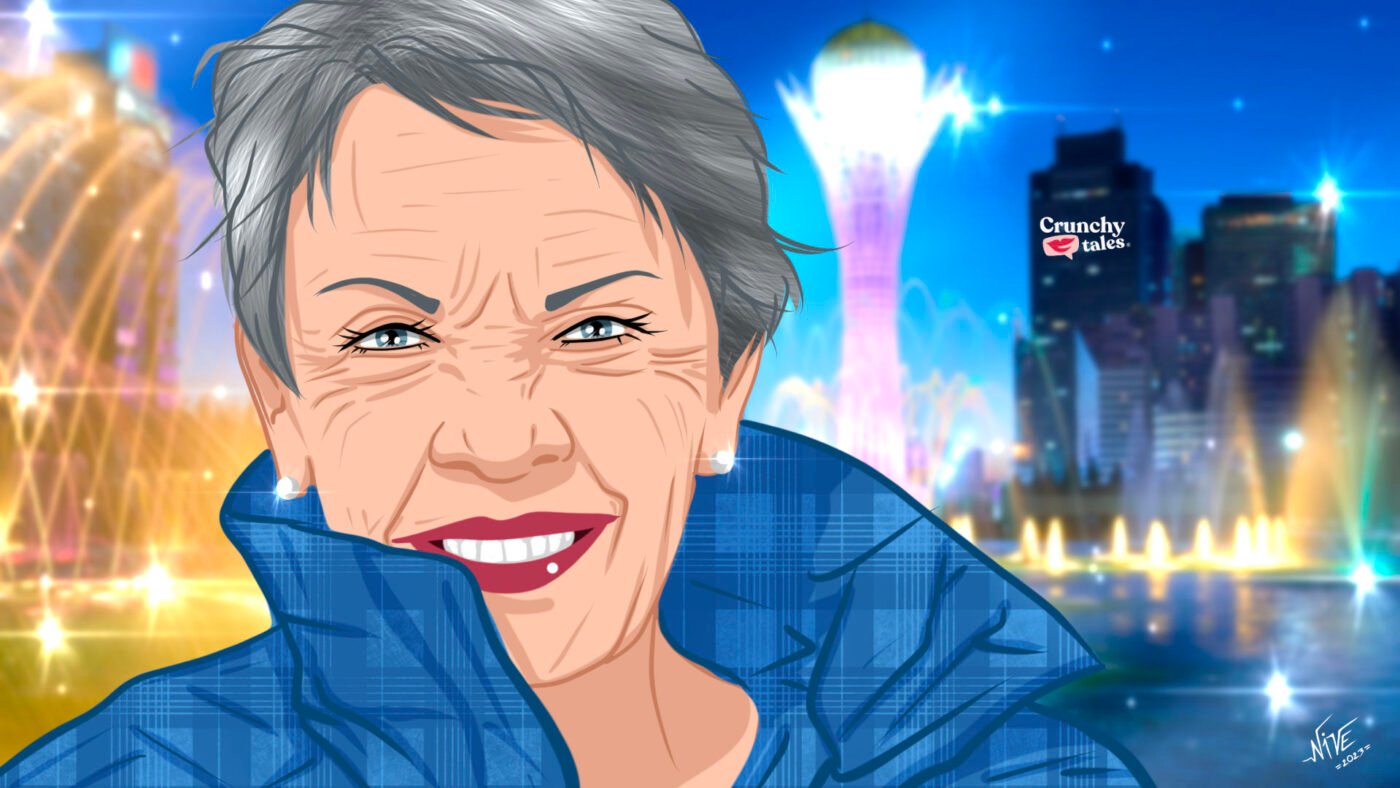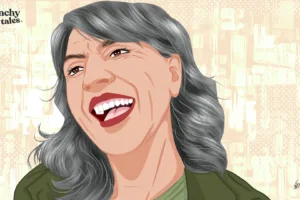Breaking Free from the Anti-Ageing Obsession: Why It’s Time to Shift Our Focus
In a society that often glorifies youth and perpetuates the idea that getting old is something to be feared and avoided, breaking free from the anti-ageing obsession can feel like a revolutionary act but there is still a long way to go for midlifers before being able to fully embrace the beauty of ageing.
The reality is that ageism – the last socially acceptable prejudice- sucks and reimagining healthier relationships with our older selves is not easy.
Many of us have either experienced that or know of women who were passed up for promotions because of their age, despite the illegality of age discrimination in the workplace.
Women in Hollywood complain about the lack of roles for women above the age of 30. Advertisers bombard us with images of what they regard as beauty, which usually hides any signs of ageing. Social media images compound the problem.
Even supermodel, Christie Brinkley, who at age 69 is stunningly beautiful, is not immune. She recently complained on Instagram about those she calls ‘The Wrinkle Brigade’: “They are the people that scan celebrities’ pages, hoping to find some cellulite, wrinkles, or anything that they can point to critique,” she asserts.
So, how can we shift our focus and embrace ageing as a natural part of life?
The societal pressure of anti-ageing
There are some reasons for challenging these societal norms and redefining what it means to be beautiful at every age is so difficult. Pressure on women to have youthful, standard beauty, is rooted in misogyny and it is a by-product of paternalism.
“We’ve all been socialized in Western cultures and perhaps even more so in the U.S., to prize youth and to associate beauty with youth,” explains licensed clinical psychologist and certified executive coach Dr Nicole Cutts: “There are, of course, some biological determinants connected with this, as fertility in women is connected to youth, but there are so many more social constructs that create this issue“, she says. “Sexism and a patriarchal society prize women for their beauty and, because our definition of beauty aligns with age, the prevailing ethos says that signs of ageing are simply not attractive. Because a large part of our power as women in this society comes from our ability to be sexually attractive, we cling to beauty and also see it as a large part of our power to influence others.”
What we often overlook in the West is that we have an ageing population who now have a choice: to accept that they are getting older and then get on with something more interesting, or to obsess about how to look younger. With our significant spending and political power, isn’t it about time to make ageing more aspirational?
Challenging societal beauty standards
Unfortunately, ageing is still such a painful subject and experience for many midlife women. When society bombards us with images of flawless skin, toned bodies, and eternal youth, it’s clear why we might feel inadequate and invisible as we age.
The beauty industry commands billions of consumer dollars by promoting ageist beliefs, fuelling a relentless obsession with anti-ageing, and profiting off of people’s insecurities. The United States has the highest rate of cosmetic surgery procedures being performed (with Brazil and South Korea taking second and third places) which include nose reshaping, eyelid surgery, facelifts, liposuction and breast augmentation, amongst the most popular.
With all of the messaging blanketing our society equating looking young with looking good, I do not behove those who choose to have plastic surgery. It’s not something I’d choose for myself, but I think people have a right to feel good about themselves and to determine what will make them feel this way.
“Where it comes to looking young, women increasingly use the benefits of plastic surgery techniques,” observes Dr Anita Gadhia-Smith, a psychotherapist with Practicaltherapy.net in Washington, D.C. “This can be a slippery slope. If it is a never-ending quest for perfection, satisfaction may never come. However, if there is something that really bothers you about your appearance, and you can do something about it, why not? It makes sense to take it vantage of modern science without making it a religion,” she adds. “I do recommend, however, that the inside work not be neglected in favour of solely focusing on improving the outsides. We can find balance in harmony with our insides, as well as our appearance and age gracefully,” she concludes.
Dr Cutts echoes this sentiment: “Every woman should consider how she derives self-esteem and self-worth and deconstruct her own views and perhaps work on valuing herself for more than just her ability to attract”, she explains. “It’s up to women whether or not they should get plastic surgery or other procedures. I’d just recommend that they consider how they derive self-worth and come to a place that is healthy for them and do what makes them happy from that place.”
Embracing the Journey of Ageing
Of course, we all know deep down that beauty comes from within oneself. It’s good energy, confidence, wisdom, kindness and good work.
However, since we all have a bit of ego, and impressions can make a difference in some situations, it makes sense to make some effort to present one’s best appearance to the world. But we each get to decide what, exactly, that means and how much effort we will devote to looking for what society deems to be good.
All choices are valid for Jacqueline (Jack) Perez, Pro-Aging Champion, Founder of Kuel Life: “I believe the normalization of ageing includes both the women who employ the likes of Botox, fillers, and cosmetic surgery and those who decide to allow nature to take its course. There is room for both of us at the table! The key is to support and empower one another. We are all in this together.”
None of us wants to give up the learning and growth we have earned over the years as we age. Mental health, life satisfaction and happiness have been shown to increase in later adulthood.
According to Dr Ellen Albertson, the Midlife Whisperer, a podcaster, nutritionist, Psychologist and wellbeing coach, “the impact of plastic surgery is not long-lasting and doesn’t promote long-term health and happiness. An alternative is to examine your thoughts and feelings about ageing prejudices and replace them with thoughts, emotions and actions that truly enhance health and make you feel and look vibrant, alive, joyful and confident.”
Individual and cultural attitudes can be changed. Sometimes, small switches can make a difference and help us break free from the anti-ageing obsession. The grey revolution might be a good example, with celebrities like Andie MacDowell, Rita Moreno, Diane Keaton, Helen Mirren, Jamie Lee Curtis, Jane Fonda, Allison Janney and Glenn Close leading the way and helping to change societal attitudes while rocking their natural grey, silver or white hair colour.
We all must work to stop the natural process of ageing from being weaponized against women, perhaps one conversation and example at a time. All the saved time and money could be better spent having adventures, seeing the world, and enjoying life.
Like this post? Support Us or Sign up to our newsletter to get more articles like this delivered straight to your inbox!






